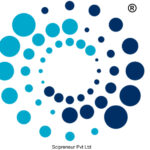
Novartis announces Zykadia® first-line study results showing 16.6 month progression-free survival in patients with ALK+ advanced NSCLC
- Patients without brain metastases at diagnosis experienced median progression-free survival of 26.3 months, the longest seen in a global Phase III study in ALK+ NSCLC[1]
- Patients with measurable brain metastases in the Zykadia arm experienced an intracranial response rate of more than 70%[1]
- Data will be used to support global regulatory submissions for first-line use of Zykadia in ALK+ advanced NSCLC patients
December 6, 2016
Novartis today announced results from its Phase III open-label, randomized, active-controlled, multi-center ASCEND-4 study, which found that patients with anaplastic lymphoma kinase-positive (ALK+) advanced non-small cell lung cancer (NSCLC) treated with first-line Zykadia®(ceritinib) had a median progression-free survival (PFS) of 16.6 months (95% confidence interval [CI]: 12.6, 27.2), compared to 8.1 months (95% CI: 5.8, 11.1) in patients treated with standard first-line chemotherapy with maintenance. This equated to a 45% reduction in the risk of disease progression (hazard ratio [HR] = 0.55, P<0.001)[1]. Results were presented during the Presidential Symposium at the 17th World Conference on Lung Cancer (WCLC), hosted by the International Association for the Study of Lung Cancer (IASLC), in Vienna. These late-breaking results were also featured in an official conference press briefing.
“These data demonstrate the potential to more than double a patient’s progression-free survival when they take Zykadia as their first ALK inhibitor rather than undergoing treatment with chemotherapy,” said lead investigator Dr. Gilberto de Castro Jr., head of Thoracic Oncology and Head and Neck Cancer clinic in the Clinical Oncology Service of the Institute of Cancer of São Paulo (ICESP), in São Paulo, Brazil. “For clinicians, who are constantly working to extend a patient’s response to treatment in the first-line setting, the ASCEND-4 results are very compelling.”
Overall survival data, a key secondary endpoint of the study, are immature; however, a positive trend in favor of Zykadia was observed, despite 72.4% of patients in the chemotherapy arm receiving an ALK inhibitor as their first treatment after discontinuing chemotherapy. Pre-specified secondary endpoints demonstrating the efficacy of Zykadia in ALK+ advanced NSCLC patients included overall response rate (ORR), overall intracranial response rate (OIRR), disease control rate (DCR) and duration of response (DoR).
Patients taking Zykadia had an ORR of 72.5% (95% CI: 65.5, 78.7) compared to 26.7% (95% CI: 20.5, 33.7) in patients treated with standard chemotherapy. Further, patients with measurable brain metastases experienced an OIRR of 72.7% (95% CI: 49.8, 89.3, n=22) with Zykadia compared to 27.3% (95% CI: 10.7, 50.2, n=22) with standard chemotherapy. Patients without brain metastases at screening experienced a median PFS of 26.3 months (95% CI: 15.4, 27.7, n=130) with Zykadia compared to 8.3 months (95% CI: 6.0, 13.7, n=125) with standard chemotherapy. Additionally, patients taking Zykadia demonstrated a DCR of 84.7% (95% CI: 78.7, 89.5) and DoR of 23.9 months (95% CI: 16.6, not estimable)[1]. Study results were measured by a blinded independent review committee (BIRC). Patients treated with Zykadia also reported better overall general health status and improvement in lung cancer-specific symptoms compared to patients treated with standard chemotherapy[2].
“The patient response to treatment is high and durable in the first-line setting,” said Bruno Strigini, CEO, Novartis Oncology. “Based on these results, Novartis is initiating discussions with regulatory authorities worldwide regarding this potential use of Zykadia to further improve outcomes for patients with ALK+ advanced NSCLC.”
The safety profile of Zykadia in the ASCEND-4 study was consistent with the previously known safety profile in patients with ALK+ advanced NSCLC. The most common adverse events (AEs) occurring in more than 50% of Zykadia patients were diarrhea (84.7%), nausea (68.8%), vomiting (66.1%), ALT increase (60.3%) and AST increase (52.9%), which were mostly grade 1 and 2 and managed with dose interruption, dose reduction and concomitant medication. No new or unexpected safety concerns were observed[1].
Novartis also presented an initial investigation of the pharmacokinetic (PK) profile of Zykadia 450 mg or 600 mg taken with a low-fat meal versus Zykadia 750 mg taken after fasting, as currently indicated. This Phase I prospective, open-label, multicenter, randomized study found (in Part 1) that relative to the 750 mg fasted arm, the 450 mg fed arm demonstrated comparable steady-state PK, while the 600 mg fed arm showed approximately 25% higher steady-state PK. Further, preliminary safety data found the overall frequency of AEs were comparable between groups; however, incidences of gastrointestinal-related AEs (diarrhea, nausea or vomiting) were lowest in the Zykadia 450 mg group that ate a low-fat meal, with no grade 3/4 AEs reported[3]. This study is ongoing and continues to enroll treatment-naïve patients into Part 2, assessing efficacy across the three treatment arms and evaluating safety follow-up.
One of 12 known genetic drivers of NSCLC, the ALK gene arrangement affects approximately 2-7% of people with NSCLC[4],[5]. These patients are candidates for treatment with a targeted ALK inhibitor[5]. To determine a personalized treatment plan, medical organizations recommend genetic testing for patients with lung cancer[6].
About ASCEND-4
ASCEND-4 was a Phase III randomized, open-label, multicenter, global clinical trial to evaluate the safety and efficacy of Zykadia compared to standard chemotherapy, including maintenance, in adult patients with Stage IIIB or IV ALK+ advanced NSCLC who received no prior therapy for their advanced disease. Patients received Zykadia orally at 750 mg/daily or standard pemetrexed-based platinum doublet chemotherapy per label (pemetrexed 500 mg/m2 plus cisplatin 75 mg/m2 or carboplatin AUC 5-6) for 4 cycles followed by pemetrexed maintenance.
Of 376 patients, 189 (59 with brain metastases) were randomized to Zykadia and 187 (62 with brain metastases) to chemotherapy. Among patients randomized to the chemotherapy arm, 105 (60%) received an ALK inhibitor as their first treatment after chemotherapy.
About Zykadia
Zykadia is an oral, selective inhibitor of anaplastic lymphoma kinase (ALK), a gene that can fuse with others to form an abnormal “fusion protein” that promotes the development and growth of certain tumors in cancers including non-small cell lung cancer (NSCLC). Zykadia was granted conditional approval in the EU for the treatment of adult patients with ALK-positive advanced NSCLC previously treated with crizotinib. In the US, Zykadia was granted accelerated approval for the treatment of patients with ALK-positive metastatic NSCLC who have progressed on or are intolerant to crizotinib.
Zykadia is currently approved in over 55 countries worldwide. Please visit www.NovartisOncology.com/news/product-portfolio/zykadia(link is external) for additional information.
References
[1] De Castro, G Jr., et al. First-line Ceritinib Versus Chemotherapy in Patients With ALK-rearranged (ALK+) NSCLC: A Randomized, Phase 3 Study (ASCEND-4). Abstract # PL03.07. IASLC World Conference on Lung Cancer. Vienna, 6 December 2016.
[2] Tan, D.S., et al. PROs With Ceritinib Versus Chemotherapy in Patients With Previously Untreated ALK-rearranged Nonsquamous NSCLC (ASCEND-4). Abstract P3.02a-025. IASLC World Conference on Lung Cancer. Vienna, 7 December 2016.
[3] Dziadziuszko, R., et al. Phase 1 Study of Ceritinib 450 mg or 600 mg Taken with a Low-Fat Meal versus 750 mg in Fasted State in ALK+ Metastatic NSCLC. Abstract P3.02a-036. IASLC World Conference on Lung Cancer. Vienna, 7 December 2016.
[4] International Cancer Control: Global Cancer Statistics. Centers for Disease Control and Prevention Website. http://www.cdc.gov/cancer/international/statistics.htm. Last updated February 2015(link is external).
[5] National Comprehensive Cancer Network (NCCN). NCCN Clinical Practice Guidelines in Oncology (NCCN Guidelines): Non-Small Cell Lung Cancer. 2014: 3: 1-148.
[6] Lindeman, N.I., et al. Molecular Testing Guideline for Selection of Lung Cancer Patients for EGFR and ALK Tyrosine Kinase Inhibitors. Arch Pathol Lab Med. 2013; 137: 828-1174.







Leave a Reply